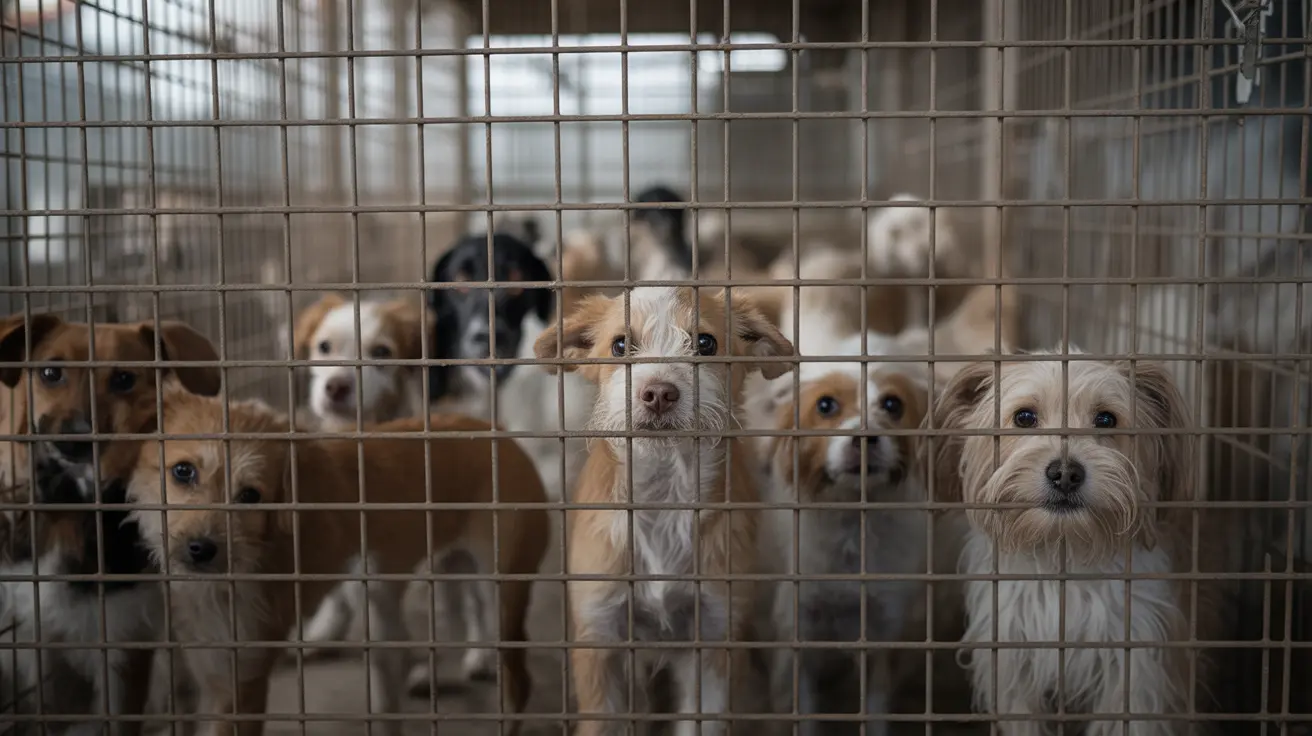Animal control officers in Orange City, Florida, successfully rescued 41 dogs from a single home this week after concerned neighbors alerted authorities about potential animal welfare issues. The rescue operation highlights the critical importance of community vigilance in identifying animal hoarding signs and taking action to protect vulnerable pets.
The case underscores how animal hoarding can quickly overwhelm even well-intentioned pet owners, creating dangerous conditions that require immediate intervention from local authorities and animal welfare organizations. When neighbors notice concerning signs, their reports to animal control can literally save lives.
Understanding Animal Hoarding Signs in Communities
Animal hoarding situations often develop gradually, making them difficult for owners to recognize while being more apparent to neighbors and community members. The Orange City case demonstrates how community awareness plays a vital role in identifying homes where animals may be suffering from neglect or inadequate care.
Pet hoarding typically involves individuals who accumulate more animals than they can properly house, feed, or provide veterinary care for. These situations frequently stem from mental health challenges, including obsessive-compulsive tendencies or past trauma, causing owners to form intense emotional attachments to animals despite being unable to meet their basic needs.
Recognizing Warning Signs in Your Neighborhood
Common indicators that neighbors might observe include persistent strong odors emanating from a property, unusual amounts of noise from multiple animals, and homes with covered windows or signs of disrepair. Animals visible from outside may appear malnourished, sick, or living in overcrowded conditions.
How to Report Animal Hoarding Concerns Effectively
When community members suspect animal hoarding, documenting observable evidence becomes crucial for authorities to take appropriate action. The Orange City rescue succeeded because concerned neighbors provided animal control with sufficient information to warrant a welfare check.
Effective reporting involves noting specific details like unusual odors, sounds, or visible animal conditions while avoiding trespassing or confrontation. Local animal control agencies, humane societies, and law enforcement all serve as appropriate contacts for reporting suspected animal welfare issues.
Animal Hoarding Effects on Pets and Recovery Process
The 41 dogs rescued from the Orange City home will likely require extensive veterinary care and behavioral rehabilitation before becoming available for adoption. Animal hoarding effects on pets include malnutrition, untreated medical conditions, poor socialization, and trauma from living in overcrowded, unsanitary environments.
Animal shelters and veterinary teams work systematically to address the complex needs of hoarded animals. This process typically involves immediate medical triage, spay and neuter procedures, quarantine protocols to prevent disease transmission, and gradual behavioral rehabilitation to help animals adapt to normal living conditions.
Halifax Humane Society Rescue and Rehabilitation Efforts
Organizations like the Halifax Humane Society often play crucial roles in large-scale animal rescue operations, providing specialized care for animals from hoarding situations. These facilities have the resources and expertise necessary to handle multiple animals simultaneously while ensuring each receives individualized attention.
Animal Welfare Laws Orange City and Legal Frameworks
Most municipalities, including Orange City, maintain specific regulations regarding pet ownership limits to prevent hoarding situations. These animal control pet limits typically restrict households to a reasonable number of animals, often four dogs, and may require pet registration to ensure proper care and monitoring.
When violations occur, authorities generally focus on humane resolution rather than punitive measures, especially when owners demonstrate cooperation. The goal remains protecting animal welfare while providing support and resources to overwhelmed pet owners.
Community Role in Animal Welfare Protection
The Orange City rescue demonstrates how community vigilance serves as a first line of defense for animal welfare. Neighbors who remain alert to potential problems and report concerns appropriately enable authorities to intervene before situations become life-threatening for the animals involved.
Pet owners can also contribute by maintaining awareness of their own capacity to provide proper care and seeking help when feeling overwhelmed. Local animal welfare organizations often provide resources and support for owners facing challenges in caring for their pets.
Frequently Asked Questions
What signs indicate animal hoarding, and how can neighbors recognize it?
Common signs include strong odors from waste, overcrowded and unsanitary conditions, animals appearing malnourished or sick, windows covered or homes in disrepair, and reluctance by owners to let visitors inside.
What should I do if I suspect someone is hoarding animals in my community?
Document observable evidence like odors, noise, or animal conditions, and report concerns to local animal control, humane societies, or law enforcement for a welfare check.
Why do animal hoarders accumulate more pets than they can care for, and how does this affect the animals?
Hoarding often stems from mental health issues such as obsessive-compulsive disorder or trauma, causing owners to intensely attach to animals despite being unable to meet their needs, leading to neglect, illness, and poor living conditions for the animals.
How do animal shelters and veterinarians care for large groups of rescued hoarded animals?
Shelters perform urgent medical evaluations, triage treatments including spaying/neutering and surgeries, quarantine animals to prevent disease spread, and work on rehabilitating behavioral issues before putting them up for adoption.
What legal limits and requirements exist for pet ownership to prevent hoarding?
Many municipalities, like Orange City, Florida, limit the number of dogs per household (e.g., four dogs) and require pet registration to ensure proper care and control; violations can lead to citations but often focus on humane resolution when owners cooperate.
The successful rescue of these 41 dogs serves as a reminder that community awareness and prompt reporting can make the difference between life and death for animals in distress. By understanding the signs of animal hoarding and knowing how to respond appropriately, we all play a part in protecting vulnerable pets in our communities.






